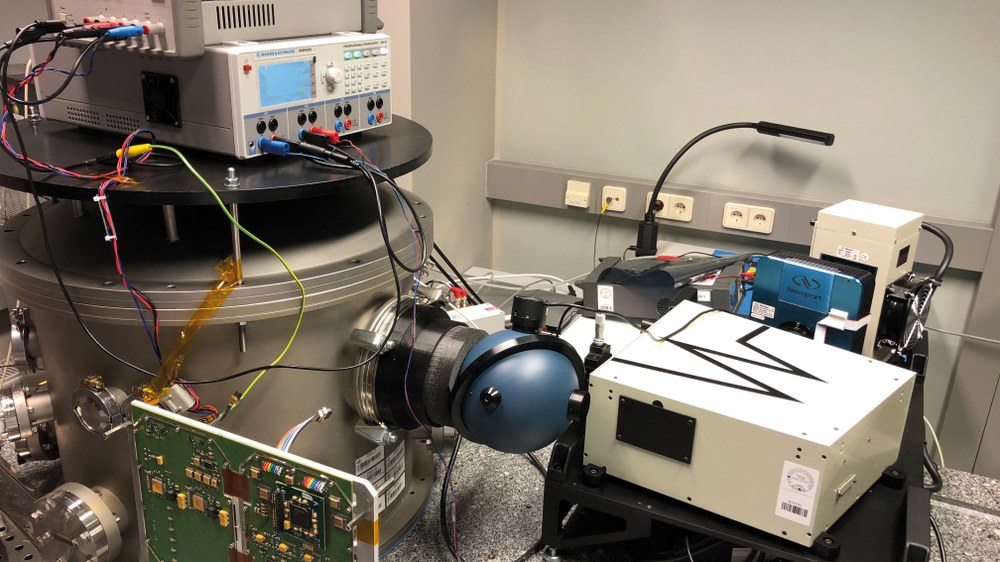Detector Characterisation Laboratory (DCL)

The department PSS is in the process of establishing a laboratory to characterise 1D and 2D detectors for future space instrument developments. State of the art sensors and novel components of electro-optical imaging systems like Fabry-Perot filter will be tested and evaluated for future applications. The laboratory includes a high-performance data acquisition system, a big data storage system and an optical bench. An illumination system, vacuum cooling system and x-y actuator system for single-pixel illumination complement the setup and allow the complete evaluation of the electro-optical performance of detectors. Thus, important detector figures of merit such as responsivity, detectivity, noise equivalent temperature difference, dark current, linearity, dynamic range, well depth, pixel response non-uniformity, crosstalk and the modular transfer function can be determined.
Our tuneable light source covers a spectral range from 400 nm up to 14 µm and our vacuum cryostat can operate at temperatures between 50 K and 350 K. The test setup is complemented by electronics measurement equipment. An arbitrary generator allows testing and optimisation of clocking sequences for detector readout control signals and an Archon CCD controller for rapid detector characterisation was procured and has been successfully commissioned. The thermal vacuum cryostat has been set up and the tuneable light source for visible and thermal irradiation as well as an additional flexible data acquisition system are in procurement.
The DCL allows a time-saving detector preselection and characterisation of detectors according to the science requirements of our space missions. In addition, the DCL will be used to perform detector characterisation after irradiation (TID, gamma, high energetic ions).
Missions involved
- JUICE (JANUS)
- Comet Interceptor
- New Frontiers 5 (proposal phase)
Responsible
Department: Planetary Sensor Systems (PSS)
